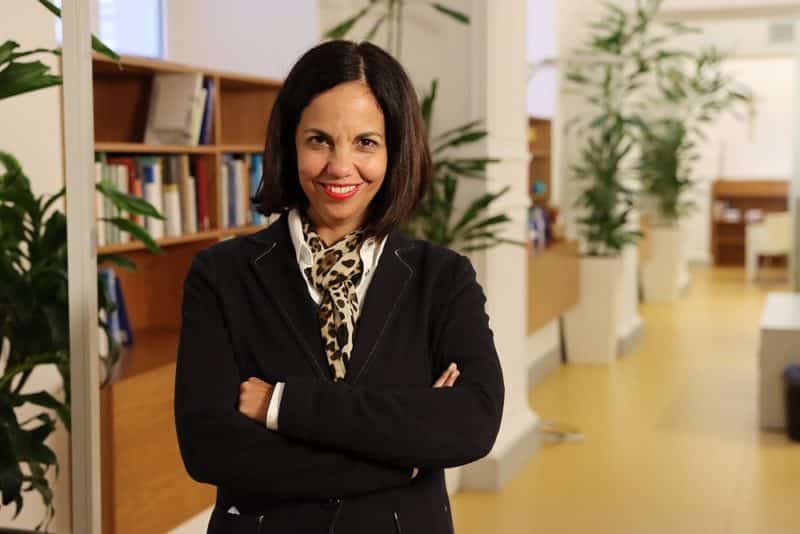The Covid-19 pandemic has revealed “the sin of the world” as well as “the sin of the structures”, which had left the poor and the marginalised vulnerable to more than the virus – and the mission of the theologian is to give voice to the poor and listen to God through them.
This was the gist of Te Kupenga – Catholic Theological College lecturer Dr Rocio Figueroa’s talk at a webinar titled “Doing theology in a time of pandemic”, organised by the Theology Research Group in the Sydney College of Divinity. The same conference will be held on October 1 in Napier.
“This pandemic is an epistemic means to see the world. Often the death of an individual from Covid-19 reveals pre-existing health issues,” Dr Figueroa said.
“Paralleling this, the impact on a society of Covid-19 reveals pre-existing conditions. It reveals the sin of the world, the sin of our structures in which we have abandoned the most vulnerable. It helps us to visualise what our consumeristic societies are trying to hide.”
Dr Figueroa said the way that she does theology stems from her identity as a Peruvian married to a New Zealander, and being a woman, a survivor of sexual abuse and a migrant.
The Latin American liberation theology, which applied the signa temporum or signs of the times concept, and the “see-judge-act” method created by the Young Christian Workers are the two elements on which she based her reflection.
Dr Figueroa showed a brief video about a Peruvian woman, Maria Tambo, who fled Lima on foot with her three daughters and embarked on a 350-mile journey to their home in the Amazon.
“The pandemic is like a mirror or x-ray of our societies,” she reflected. “Seeing” it through the eyes of Maria, the pandemic has shown the inequity of the social systems, deep corruption of the government and questionable economic growth of Peru, that did not benefit the poor.
Dr Figueroa said in Peru, one in three poor families do not have access to potable water. A majority of the adults work in the informal sector which means breaking the lockdown to earn cash and buy food.
“When we analyse the pandemic, we see a natural disease with overwhelming consequences for humanity. But (liberation theologian Jon) Sobrino points out about the importance of not talking just about the natural factors of a disaster and how to mitigate them, but the necessity of taking the historical-social factors seriously,” she said.
“The fact that most victims of the pandemic are poor is not an accident, but it belongs to the ‘historical essence’ of the pandemic. So, the consequences of the pandemic are not only produced by natural causes, they are also a product of injustice.”
In the video, Maria said she had to “die trying to get out (of Lima) or starve to death in my room”. However, not once during the journey did Maria blame God.
“[Maria] has lost everything: her house in Lima, her dreams for education for her daughters, her job. She didn’t ask for anything in return. She was not angry with God. I think she has a pure faith and she trusts. She is able to thank God. Everything for her is a gift. This woman has nothing. Her love for God is absolutely free,” Dr Figueroa said.
“Judging” using the Latin American method is “to read the facts based on the demands of the Gospel”, according to Dr Figueroa.
“We must resist the temptation of not seeing. We need to let ourselves be touched by the pain of the victims. The lady in the video said something that deeply affected me. She said, ‘the virus has a treatment, but hunger doesn’t’. She makes us understand that the virus is not the main problem,” Dr Figueroa pointed out.
“The problem is poverty and the injustice that causes it. We, as theologians, need to denounce the real problem of the pandemic,” she stressed.
At one point in the video, Maria sung to herself to take her mind off the difficulties of the journey, her voice breaking and her eyes tearing up.
“Maria challenges us how to speak of hope and how to sing to God with the beauty of the psalmist,” Dr Figueroa said.
“Her words are God’s hymn. She, in the middle of her exile, looks up and, feeling the pain, insists on singing a song of hope. At the end of her long journey, she affirmed: ‘Thankfully God has protected us, but I have put you at risk.’ I think that here we can perceive Jesus’ total trust in the Father.”
Dr Figueroa said Maria’s voice, and those of people living in abject poverty must move us to act.
“I feel that our mission as theologians is to give voice to the Marias of the world. They are the ones who can help us to listen to the voice of God. She is that sign of the times which calls me to oppose any kind of injustice and to follow the way of justice. Her voice is the self-giving of the victim that continues loving God and the others,” she said.

Reader Interactions